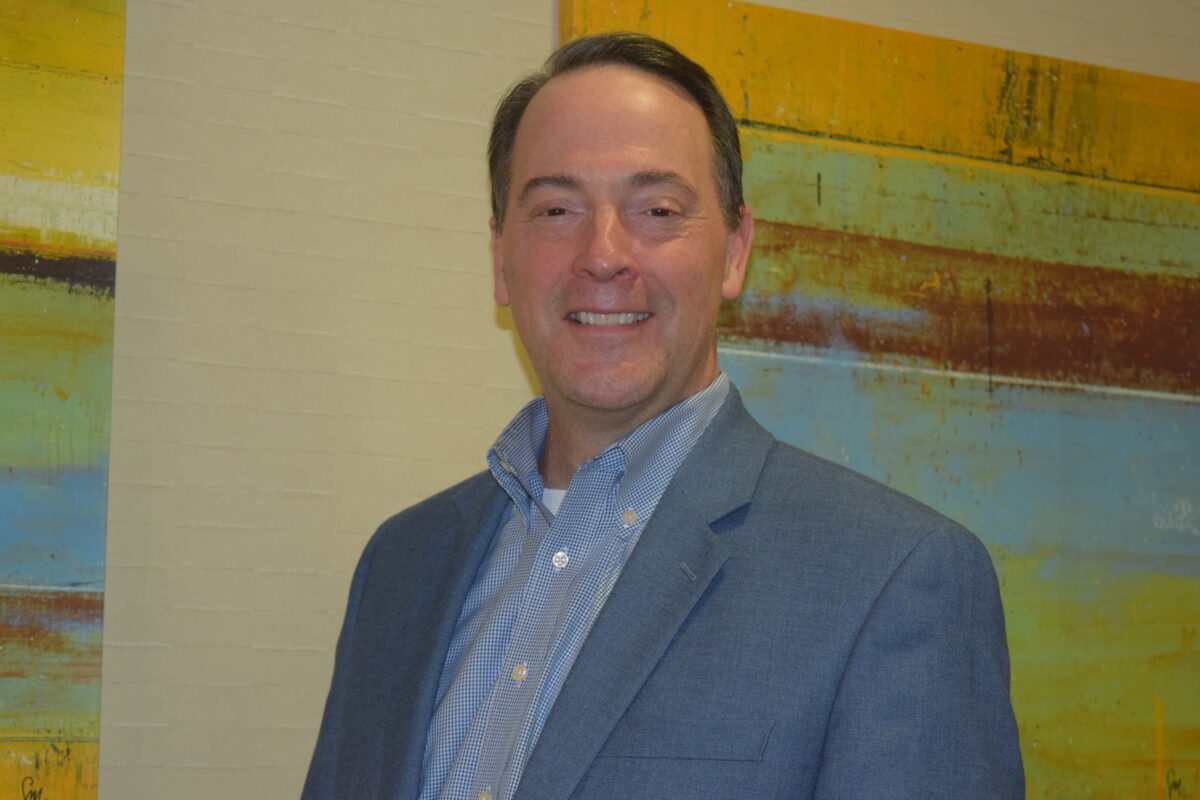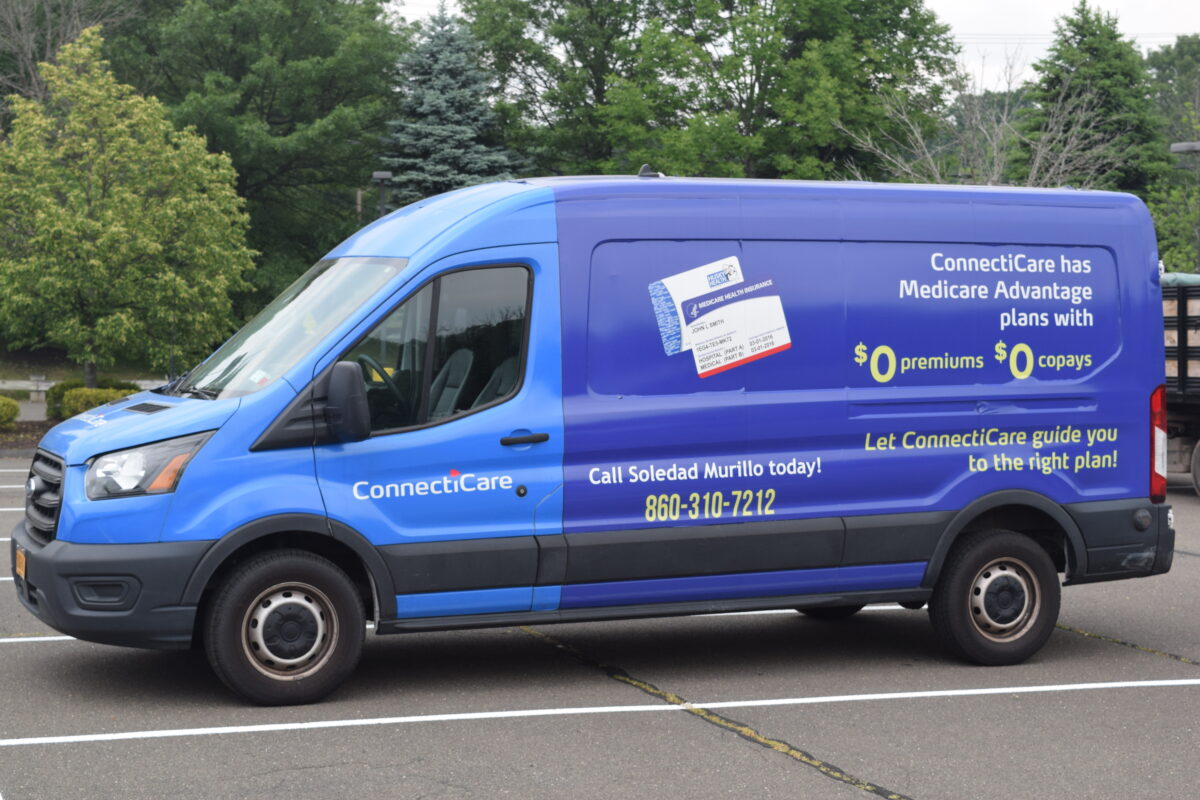Exclusive: Mark Meador, ConnectiCare’s new president, outlines his leadership goals
On June 6, the health plan ConnectiCare announced the appointment of Mark Meador as its new president. Meador has been with ConnectiCare since 2019, serving as the company”™s general counsel. Earlier in his career, he spent over 20 years with Aetna in various executive positions, and he had also held leadership positions with other insurance carriers including Prudential and worked for a private law firm in Atlanta.
Meador succeeded Roberta Wachtelhausen, who has served as interim president since November 2022. In his first interview in his new job, Meador spoke with the Business Journals from his office in Farmington, Connecticut, regarding his plans for the company while detailing the challenges it faces.

Congratulations on your new position. What will be your initial priorities as ConnectiCare president?
I think my biggest priority is we need to get ConnectiCare back to profitability. We’ve had some tough times over the last couple years from a financial standpoint ”“ that is going to be priorities one, two, and three. But we also need to maintain our culture ”“ we have a fantastic culture here at ConnectiCare, and that’s what attracted me four and a half years ago when I came. We’re going to maintain that and strengthen that.
You mentioned profitability over the last few years. Was this situation fueled by pandemic related problems, or were there other issues?
It was largely pandemic ”“ the Covid costs really hurt us. If you look at our competition, they have other revenue streams that are coming in ”“ they may own a pharmacy, they own providers. “We are a local health insurance company, and our revenue streams reflect that. Our primary focus is providing quality health plans to Connecticut’s individuals, businesses, and Medicare-eligible residents. So, when we got these Covid expenses that we couldn’t put into our rates, it hurt us.
We’re climbing out of that and we’re looking for a better future, but we have some work to do.
In regard to culture, how ConnectiCare maintain quality customer service?
It’s a great question, and it’s something that’s near and dear to my heart because that is why I came here. We have people in this organization who are dedicated to treating people right. It’s on our banner: ConnectiCare Cares. And we mean it ”“ we believe in it and we’re going to continue to believe in it.
We’re going to do things we already do, but we’re going to do a little more of it. People do a good job with a customer and we’re going to shout it out ”“ we’re going to get other people to know that we’re doing such a good job within our own employee base.
The other day, we had a member who had some real concerns on the phone ”“ she had some mental health issues and needed some help on what her coverage was. She was in the waiting room about to see a provider. And one of our employees just talked with her for over half an hour ”“ I think was 45 minutes ”“ in a caring way, got her needs met, and did it in a way that really made me proud to be here. So, I’m going to take that example and talk about it in our next all-employee meeting to emphasize the culture we want here.
Is this achieved by being able to hire the right people? Or is this something that is created in employee training?
We do our training and I think we’re going do more of it. But I also think we’re known for it ”“ people who have that personality are attracted to our culture and they come here for that. If you get it right, it’s sort of self-perpetuating.
I get calls all the time from people who know me in the industry and they say they’d love to work for ConnectiCare because they know our culture. I can’t think of a better culture in this industry.
With Covid now mostly in our rearview mirror, health care costs still have not gone down. What are you doing to mitigate costs, so the customer doesn’t get dented but, at the same time, the company doesn’t get dented?
That is the big challenge, right? The medical costs that keep on escalating? Yes, and that’s our job to work with everybody to reduce them.
Now, the problem is we have hospital costs that are running rampant ”“ they”™re just increasing every year ”“ and we have pharmaceutical costs that go up and up. Some of this is for blockbuster drugs, and we understand the need for that. But the pharmaceutical companies can charge a premium and we have to negotiate as best we can to keep those prices down.
But we also need the the hospitals and these other stakeholders to realize they need to be responsible and work together ”“ hopefully, with policymakers and the drug manufacturers ”“ to try and reduce these increasing costs. It’s not easy.

Does ConnectiCare have an active lobbying presence in Hartford?
Yes, we’re very involved. We have a government affairs team and stay involved on the ground to do whatever we can to decrease costs and watch out for legislation that might increase costs.
Many people view their health from a reactive rather than proactive approach. What are you doing proactively to encourage wellness among people?
We’re working on that because it affects everybody. It affected me ”“ during Covid, I was sitting in my basement working for 10 to 12 hours a day and I gained about 20 pounds. It’s affected my health.
We have a subsidiary called WellSpark and their mission is to increase wellness. They have a whole coaching model that is dedicated to getting people to live better. For example, if you have pre-diabetes, the coach can help you lose weight and eat right.
In our day-to-day case management, we have individuals who go out and bring social services to our members if they need them, and that can help their overall health. We work on that every day.
If we were to revisit this conversation a year from now, where do you see yourself and where do you see ConnectiCare?
I see myself as having successfully stewarded ConnectiCare into a better financial position, maintaining the culture and having an influence in Connecticut by bending the cost curve, developing relationships with the governor, the legislators and the hospital systems so we can make a change. We can do that and I will be very happy.